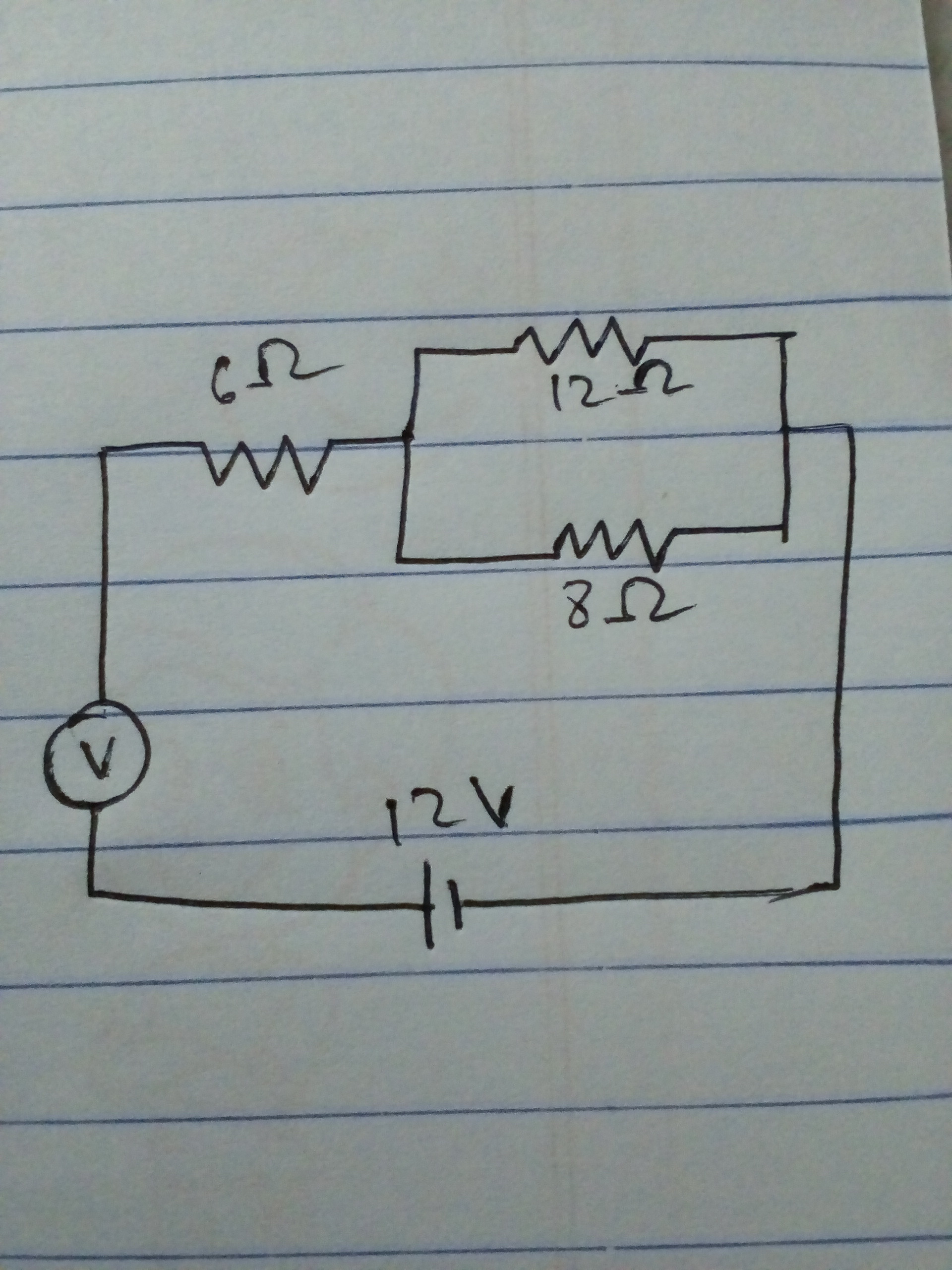 What will be the voltmeter reading of the circuit?
What will be the voltmeter reading of the circuit?
-
$\begingroup$ Hi, welcome to Physics SE! Unfortunately, homework-like questions and check-my-work questions are generally considered off-topic here. We intend our questions to be potentially useful to a broader set of users than just the one asking, and prefer conceptual questions. Can you try making a question about some concepts that you'd need to solve this problem? Also mention any thoughts you currently have about the solution, and your assessment of their usefulness. $\endgroup$– user191954Commented Aug 3, 2018 at 15:45
-
$\begingroup$ The voltmeter will probably read 12 V. I can't be sure, because you have connected the voltmeter in series, and voltmeters should ALWAYS be connected in parallel. Note - the very high resistance of the voltmeter will guarantee that only a TINY current can flow in the circuit that you drew. $\endgroup$– David WhiteCommented Aug 3, 2018 at 18:28
1 Answer
12V
An ideal voltmeter has infinite input impdance, so there is no current in the resistors and hence no voltage across them. So the voltage across the meter is the same as the supply voltage.
A real voltmeter does have finite input impedance, but given how small your resistors are the difference is likely too small to measure.
For example if we assume a $10\mathrm{M\Omega}$ input impedance on our meter (typicaly for a digital multimeter), the current in the circuit is approximately $1.2\mathrm{\mu A}$. The resistance of the resistors combines to 10.8 ohms meaning the voltage across the resistors is approximately $12.96\mathrm{\mu V}$
You probablly don't have a meter that can tell the difference between 12V and 11.999987V or a voltage source that can suppply 12V with that kind of tolerance.
Analog meters have a lower input impedance but also much lower accuracy, so again I think it is unlikely you will be able to notice the difference.
